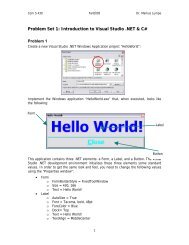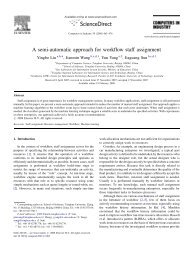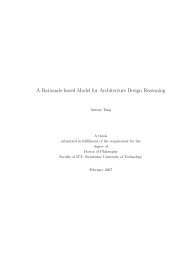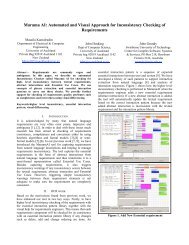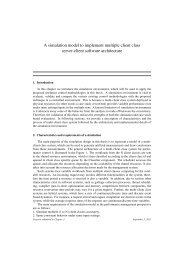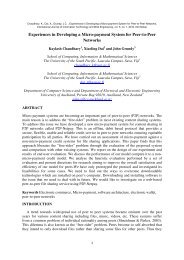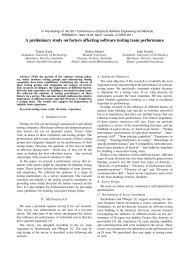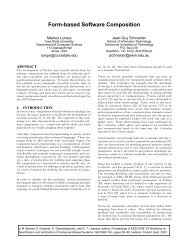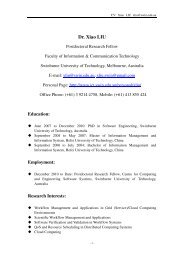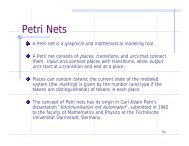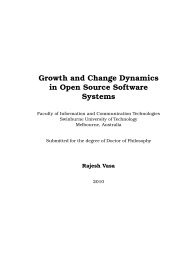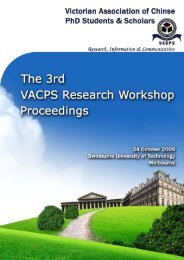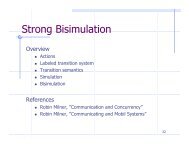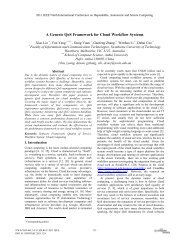Xiao Liu PhD Thesis.pdf - Faculty of Information and Communication ...
Xiao Liu PhD Thesis.pdf - Faculty of Information and Communication ...
Xiao Liu PhD Thesis.pdf - Faculty of Information and Communication ...
You also want an ePaper? Increase the reach of your titles
YUMPU automatically turns print PDFs into web optimized ePapers that Google loves.
the real world, simulation experiments should be conducted first to specify the best<br />
parameters for these components in our framework instead <strong>of</strong> using default values.<br />
To conclude, based on systematic analysis for the lifecycle support <strong>of</strong> temporal<br />
QoS in scientific cloud workflow systems, a series <strong>of</strong> new concepts, innovative<br />
strategies <strong>and</strong> algorithms have been designed to successfully fulfil the system<br />
requirements <strong>of</strong> each component in a cost-effective fashion. Therefore, we can claim<br />
that our probabilistic temporal framework can indeed achieve the cost-effective<br />
delivery <strong>of</strong> high QoS in scientific cloud workflow systems.<br />
9.2 Summary <strong>of</strong> This <strong>Thesis</strong><br />
The research objective described in this thesis is to investigate a series <strong>of</strong> new<br />
concepts, innovative strategies <strong>and</strong> algorithms for a temporal framework in order to<br />
achieve cost-effective delivery <strong>of</strong> high temporal QoS in scientific cloud workflow<br />
systems. The thesis was organised as follows:<br />
• Chapter 1 introduced temporal QoS in scientific cloud workflow systems. A<br />
motivating example in Astrophysics has been demonstrated to analyse the<br />
problems for delivering high temporal QoS in scientific cloud workflow systems.<br />
Chapter 1 also described the aims <strong>of</strong> this work, the key issues to be addressed in<br />
this thesis <strong>and</strong> the structure <strong>of</strong> this thesis.<br />
• Chapter 2 overviewed the general related work on temporal QoS in workflow<br />
systems <strong>and</strong> analysed their limitations. Specifically, a temporal consistency<br />
model is used to define temporal consistency states; temporal constraint setting<br />
is to assign both global <strong>and</strong> local temporal constraints at workflow build time;<br />
temporal checkpoint selection <strong>and</strong> temporal verification are the main steps for<br />
the monitoring <strong>of</strong> workflow execution <strong>and</strong> the detection <strong>of</strong> temporal violations;<br />
temporal violation h<strong>and</strong>ling is to compensate the existing time deficits by<br />
temporal violation h<strong>and</strong>ling strategies.<br />
• Chapter 3 presented the overview <strong>of</strong> our probabilistic framework. The basis <strong>of</strong><br />
the framework is a novel probability based temporal consistency model where<br />
163



